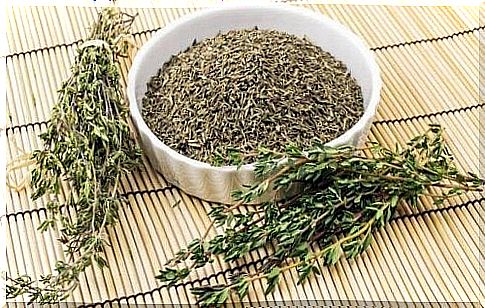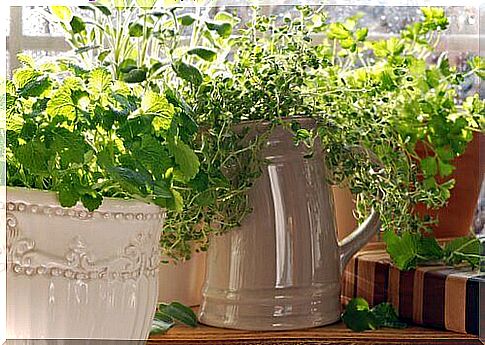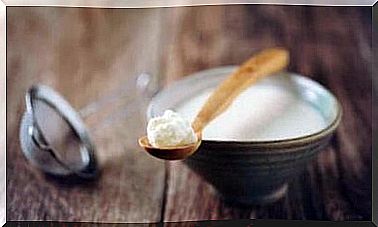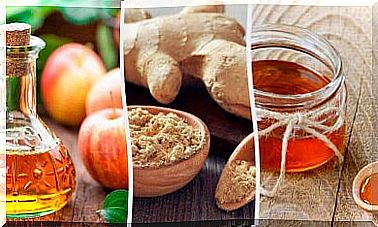The Many Benefits Of Thyme: Discover Its Uses

There are many benefits and uses of thyme. In fact, it is one of the most used herbs in gastronomy because of its rich aroma and taste. How many benefits of thyme are you already aware of? In this article we will tell you about some of the properties of this plant and the possibilities for its use. So take notes!
About thyme
Thyme, also known as Thymus vulgaris, is a relative of common mint and it is more than just a flavor enhancer. The shrub thrives in warm climates and has small purple flowers and leaves that grow around the branches. This type of herb is quite easy to obtain. You can find it in:
- nurseries
- spice shops
- supermarkets
You can also grow it yourself if you have a garden or a balcony, as it does not require much extra care to grow.
Although it is often used as a spice to add flavor and aroma to soups, purees and even to season meats, you can get a lot more out of its nutritional properties.
Today we decided to teach you how to get the most out of this plant. It has multiple functions, thanks to everything from antifungal and antimicrobial properties.
The many benefits of thyme
1. Thyme is a natural remedy for many ailments

Thyme’s many benefits make it a widely used plant for a variety of purposes. Thyme’s antibacterial and antiseptic properties make it an effective acne treatment, among other things. This is because it is quite powerful when it comes to killing the bacteria that cause skin problems.
It is a great antiseptic that can eliminate the microorganisms that cause infections. Therefore, it is recommended for people with pharyngitis and/or inflammation of the throat.
Thyme oil is also good for treating skin fungi, especially on the hands and feet. It is also very easy to use thyme oil for this:
- Immerse the affected skin in a solution of water and a few drops of thyme oil.
- Then let them soak for at least 20 minutes.
- Finally, pat the skin dry.
In addition, it is a great treatment for anemia because it contains iron. It also facilitates digestion as it prevents stomach cramps as well as the build-up of gases that can lead to abdominal pain. Drink thyme tea to reap these benefits.
Finally, thyme is an excellent remedy to treat the annoying symptoms of your menstrual cycle. This is because it reduces the menstrual pain as well as the rest of the symptoms that come with it such as:
- headache
- body aches
- fluid retention
2. It’s great to cook with
One of the many benefits of thyme is that it can impart a wonderful flavor to countless dishes. Plus, the leaves are great for garnishing dishes. It is also recommended as a seasoning to enhance the flavor of soups, purees and stews.
For a long time, herbs such as thyme were used in dishes that had to simmer for a long time. This is because slow cooking of the leaves helps to take full advantage of the oils they contain and enhance their characteristic aroma. This method is one of the easiest ways to take advantage of thyme’s many properties.
3. Thyme is a natural fungicide

Finally, one of the many benefits of thyme is that it is a natural antifungal that can help reduce pests and diseases. This plant has a fungicidal and insect repellent effect that is especially effective against the cabbage white.
Red thyme essence also has a curative and preventive effect on crops affected by fungi and bacteria. It is easy to find in nurseries. All you have to do is sprinkle it over the affected areas.
After harvest, using thyme can extend the life of fruits and vegetables. This is due to the ionic activity of the extract, which can penetrate into the cell wall of the micro-organisms and then destroy it without affecting the products.
So this is a great, non-toxic way to treat plants and prevent pests. Did you already know this application of thyme? Have you ever tried it?









